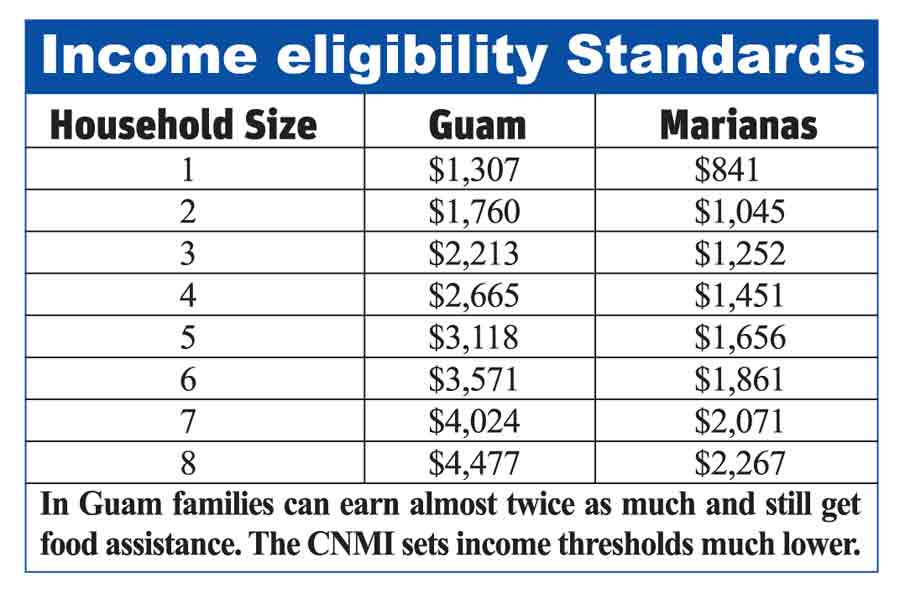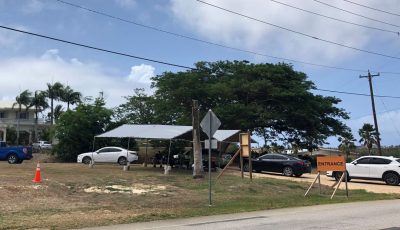‘NMI food stamp money not getting to families in need’
WASHINGTON, D.C.—The Commonwealth government is sitting on $22.5 million that should be going to families in the Marianas who need help putting food on the table. That is the report to Delegate Gregorio Kilili C. Sablan (Ind-MP) from the U.S. Department of Agriculture this week.
“I added $32.5 million to the 2014 Agricultural Act for the Marianas food stamp program—above and beyond our $12 million annual block grant,” Sablan said. “But instead of spending that money to help the elderly, children, and families who do not have enough food, the Commonwealth government is just sitting on $22.5 million. How do you explain that failure to the people here in the Marianas we are supposed to be helping?”
The backlog of unspent funds from the 2014 law also makes it next to impossible to get more money to extend the special Marianas program, Sablan added.
“The next farm bill is being written right now. It will cover the next five years and we will be left behind,” said Sablan. “In Congress, you cannot get more money, when you are not spending what you already have.”
The $18.4 million of the unspent funds are from the pilot program that Sablan put into the 2014 Agricultural Act, when he was a member of the Agriculture Committee.
In addition, the Commonwealth government has failed to spend $4.1 million from its annual block grant, according to the Department of Agriculture.
“How do you explain to other members of Congress that not only are we not spending the extra money I got in 2014, but we are not even spending all of our regular annual grant?” Sablan asked. “The Republican majority and President Trump are eager to cut food stamps nationwide.
“The Commonwealth’s failure to spend looks like CNMI officials agree with the Republican position that food stamps are not that important. They are saying cut the program.”
Long-time goal
Sablan is a long-time champion of increased food aid for Marianas families. He got the annual block grant increased from $10 million per year to $12 million, and then persuaded the Agriculture Department to allow higher benefits on Rota and Tinian, where food costs more.
His ultimate goal is inclusion of the Marianas in the national Supplemental Nutrition Assistance Program, or SNAP. The extra federal funds, spent in the Marianas, would boost the economy and create jobs.
More families would get help and benefits would be higher.
Unlike Guam, which is part of SNAP, the Commonwealth makes its own decisions about how much a Marianas family can earn and still qualify for help.
A family of four has to earn less than $17,412 to be eligible in the Marianas.
In Guam, a family of four can earn almost twice as much, $31,980 and still get food stamps.
The Commonwealth government also sets monthly benefit levels lower than Guam.
The pilot program that Sablan included in the 2014 Agricultural Act was intended to close this gap and be a stepping stone to get the Marianas into SNAP. But in its report to Sablan, the Agriculture Department projects the extra pilot program funding may not be used up until 2024—six years from now.
The Commonwealth’s failure to use its extra funding threatens Sablan’s goal of being included in SNAP.
“We always say we want the same level of federal assistance as the rest of the American political family,” Sablan said. “Then we get the help and do not use it.” (PR)




























